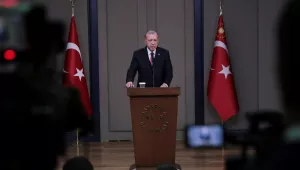Thinking Ahead: How Do U.S. Leaders Assess the Long-Term Costs of Military Intervention?
Speaker: Aaron Rapport, Research Fellow, International Security Program
In this seminar, the speaker will lay out several explanations for why policymakers may underestimate the long-term costs and risks of military action, then test these explanations against the historical record of Operation Iraqi Freedom. By understanding under what circumstances different factors will have the most influence over policymakers' perceptions of risk, it is possible to craft decision-making procedures that mitigate against biases which can lead to the adoption of prohibitively costly courses of action.
Please join us! Coffee and tea provided. Everyone is welcome, but admittance will be on a first come–first served basis.




